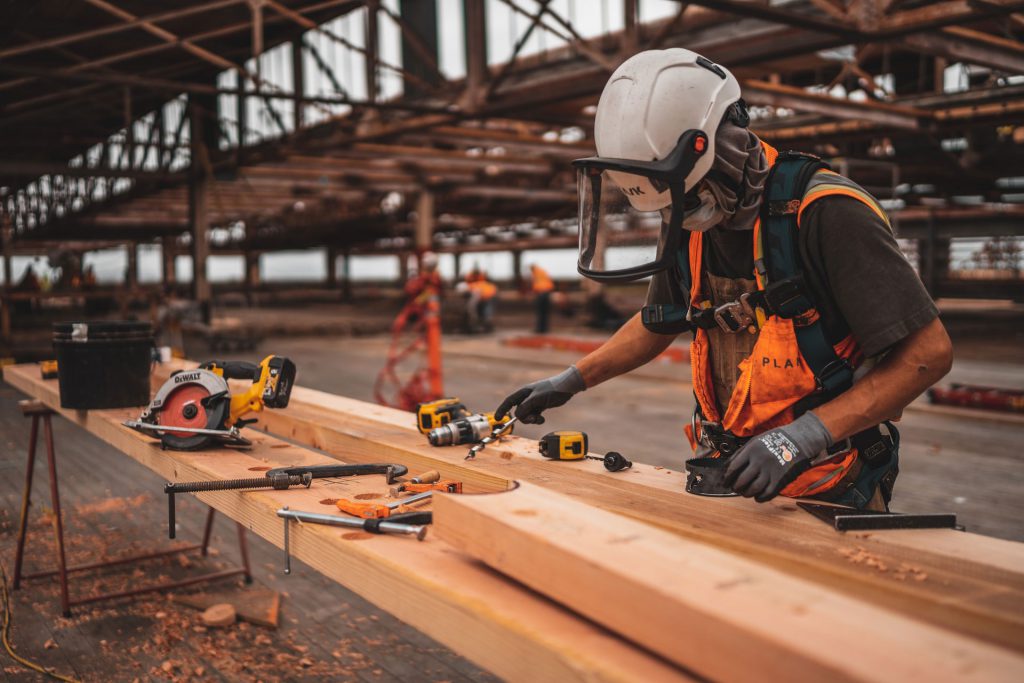Are you a homeowner or developer in Kenya looking for effective budgeting tips? Imagine this scenario: You recently purchased a piece of land and are eager to build your dream home or invest in a development project. However, you want to ensure that you manage your finances wisely and make the most out of your resources. That’s where budgeting comes in. By following these essential tips, you can assess your financial situation, create a realistic budget, prioritize your expenses, save money, and seek professional advice when needed. Whether you’re a first-time homeowner or an experienced developer, these budgeting tips will help you navigate the financial aspects of homeownership and development in Kenya.

Assessing Your Financial Situation
Assess your financial stability before embarking on any home ownership or development project in Kenya. Evaluating your income and tracking your expenses are crucial steps in determining whether you are financially prepared for such endeavors. By objectively analyzing your financial situation, you can make informed decisions and avoid potential pitfalls.
Start by evaluating your income sources. Calculate your total monthly income, including salary, rental income, or any other sources. Consider the stability and consistency of these sources, as it will impact your ability to meet financial obligations in the long run.
Next, track your expenses meticulously. This involves recording all your monthly expenditures, including bills, groceries, transportation costs, and any other regular expenses. By doing so, you can identify areas where you can potentially cut back and allocate more funds towards your home ownership or development project.
Additionally, it is essential to take into account any outstanding debts or loans you may have. Assess your ability to manage these financial obligations alongside the costs associated with your project. It is crucial to maintain a healthy debt-to-income ratio to avoid any financial strain in the future.
Creating a Realistic Budget
To create a realistic budget for your home ownership or development project in Kenya, start by considering your financial goals and prioritizing your expenses. Budgeting techniques and cost estimation play a crucial role in ensuring that your budget accurately reflects your financial capabilities and objectives.
First, assess your financial goals. Determine how much you are willing to invest in your home or development project and what returns you expect to achieve. This will help you determine the overall budget you can allocate for the project.
Next, prioritize your expenses. Identify the essential costs that cannot be compromised, such as land acquisition, construction materials, and labor. Allocate a significant portion of your budget to these expenses to ensure the successful completion of your project.
Additionally, consider using budgeting techniques such as the 50/30/20 rule. This rule suggests allocating 50% of your income to essential expenses, 30% to discretionary expenses, and 20% to savings or investments. Adjust the percentages according to your financial situation and goals.
When estimating costs, be thorough and realistic. Research the current market rates for materials, labor, and other expenses specific to your project. Consider any potential unforeseen costs or contingencies to avoid budget shortfalls.
Creating a realistic budget requires careful consideration of your financial goals, prioritizing expenses, and accurate cost estimation. By following these steps and utilizing effective budgeting techniques, you can ensure that your budget aligns with your financial capabilities and sets you up for a successful home ownership or development project in Kenya.
Prioritizing Your Expenses
Start by determining the most important expenses for your home ownership or development project in Kenya. Prioritizing your expenses is crucial for effective budget management and cutting costs. When prioritizing your expenses, consider the essential needs of your home or development project. These may include construction materials, labor costs, permits and licenses, and utility connections. It is important to allocate a significant portion of your budget to these expenses to ensure that your project is completed successfully.
In addition to the essential needs, you should also prioritize expenses that will have a long-term impact on your home or development project. This may include investing in high-quality materials and equipment that will enhance the durability and functionality of your property. Prioritizing these expenses can save you money in the long run by reducing the need for frequent repairs and replacements.
Furthermore, it is important to consider any legal and regulatory requirements when prioritizing your expenses. Allocate a portion of your budget for fees related to permits, licenses, and inspections to ensure compliance with local laws and regulations.
Tips for Saving Money on Homeownership and Development
One of the best ways to save money on homeownership and development projects in Kenya is by carefully considering your options and making smart choices. When it comes to construction materials, opting for cost-effective options can significantly reduce your expenses. Instead of using expensive materials, you can choose alternatives that offer similar functionality at a lower cost. For example, instead of using traditional bricks, you can consider using interlocking blocks, which are cheaper and easier to produce. Another cost-effective option is using sustainable building practices. By incorporating eco-friendly features into your home or development project, you can save money in the long run. For instance, using energy-efficient appliances and installing solar panels can help reduce your electricity bills. Additionally, implementing water-saving techniques such as rainwater harvesting or installing low-flow fixtures can lower your water consumption and reduce your water bills. By being mindful of cost-effective construction materials and sustainable building practices, you can save money and make your homeownership or development project more affordable.
Seeking Professional Financial Advice
If you’re a homeowner or developer in Kenya, seeking professional financial advice is essential for managing your budget effectively. With the complex nature of financial matters, it’s crucial to have an expert who can guide you through the process and help you make informed decisions. However, it’s important to be cautious and avoid scams when choosing a financial advisor.
When selecting a financial advisor, it’s advisable to do thorough research and consider their qualifications and experience. Look for professionals who are registered with recognized regulatory bodies, such as the Capital Markets Authority (CMA) or the Institute of Certified Public Accountants of Kenya (ICPAK). These organizations ensure that their members adhere to strict ethical standards and have the necessary expertise to provide sound financial advice.
Furthermore, consider seeking recommendations from trusted sources, such as friends or colleagues who have had positive experiences with financial advisors. Additionally, you can check online reviews and ratings to get a sense of their reputation and credibility.
Avoiding scams is crucial when seeking professional financial advice. Be wary of advisors promising unrealistic returns or pressuring you into making hasty investment decisions. Always verify their credentials and ensure they have a legitimate office and contact information.
Conclusion
In conclusion, budgeting is crucial for both homeowners and developers in Kenya. By assessing your financial situation, creating a realistic budget, and prioritizing expenses, you can effectively manage your finances. Additionally, seeking professional financial advice can provide valuable insights and guidance. Remember, saving money on homeownership and development is possible with careful planning and wise spending decisions. Start implementing these budgeting tips today to achieve your financial goals in Kenya.
